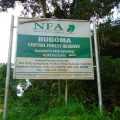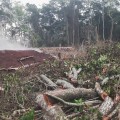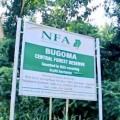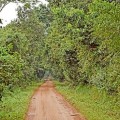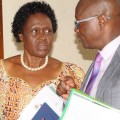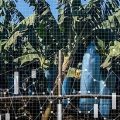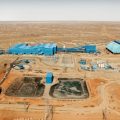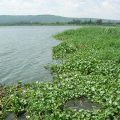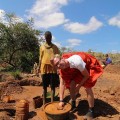SPECIAL REPORTS AND PROJECTS
The battle to save Bugoma forest goes to a regional court
Published
5 years agoon
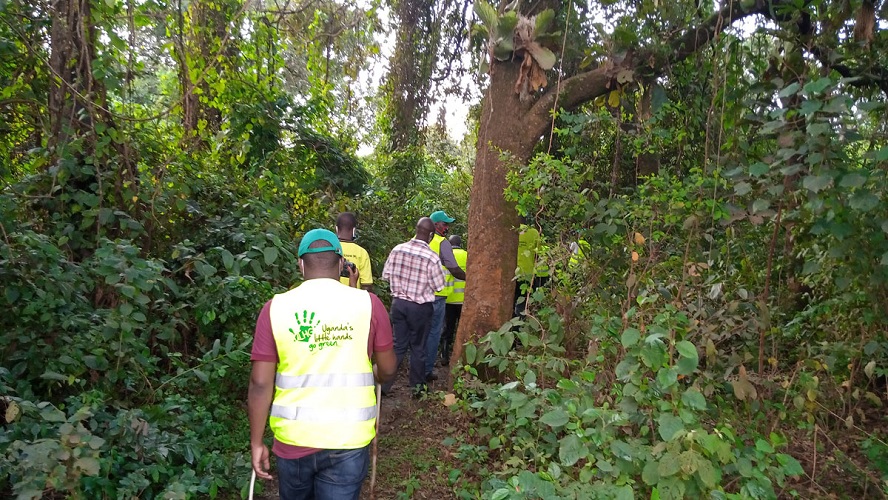
A group of environmentalists from Little Hands Go Green spent three days touring the forest. Photo by ChimpReports.
By witnessradio.org Team
Kampala – Uganda – The battle to save Bugoma Forest has been taken to the East African Court of justice.
Environmental Shield, a nonprofit organization promoting human rights and battling climate change has partnered with Robert Turyakira, a human rights defender to block the giveaway of part of Bugoma Forest land for sugar cane growing through the regional court.
Through their lawyers of Kiiza Mugisha and company advocates, the duo accuse environment body NEMA of granting Hoima Sugar limited a certificate of approval of the environment and social impact assessment okaying the use of 9.24 square miles of the area neighboring Bugoma central forest reserve for sugar cane growing and associated developments.
The duo claim that on the 14th of August 2020, Uganda’s environment regulator and sustainable guarantor, NEMA, issued a certificate number. NEMA/ESIA 13709 to Hoima sugar authorizing the Kyangwalo mixed land use project entailing the planting of sugarcane.
The project approval relates to within plot 216 block 2 traversing Butoole Parish and Kaseeta Parish, Buhanguzi County, Kikuube district boarding Bugoma Forest reserve.
The applicants claim that the Project area neighbors Bugoma central forest reserve which was gazzeted in 1932 as a tropical high forest and home to over 600 chimpanzees and its part of its ecosystem.
They also say that sugar cane growing has adverse environmental and climate change impacts including pollution of water bodies, rivers and streams boiling water quality and accuse NEMA of ignoring a climate impact assessment as necessitate by the dictates of the contemporary good environment governance and didn’t consider the human rights impact assessment prior to the project approval contrary to the constitution of the republic of Uganda, the National environment act and that o the East African treaty.
Nema is also accused of ignoring a climate change impact assessment as necessitated by the dictates of the contemporary good environment governance and didn’t consider the human rights impact assessment prior to the project approval contrary to the constitution of the republic of Uganda, the National environment act and that o the East African treaty.
Environment shield and Mr. Turyakira insist that the project approval threatens the area individual’s communities, will trigger biodiversity loss, jeopardize sustainable development, and derail appropriate climate action.
They now want court to interpret whether the actions of the government of Uganda as a partner state are unlawful and inconsistent with the provisions of the treaty and ensure that it adheres to the law in the interpretation and application of and compliance with the treaty by the partners.
Environmentalists and conservationists have warned about the dangers of giving away Bugoma forest and areas around the forest for sugarcane growing because it threatens the environment and the different wild species and birds that reside in and around the forest.
The matter is still before the Ugandan courts of law.
You may like
-


Six cattlemen opposed to the Tilenga oil project-related forced land eviction have been granted bail but will remain in prison…
-


Africa warming faster than rest of world: IPCC Sixth Assessment Report
-
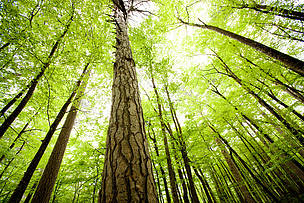

WWF launches new impact platform that engages businesses and investors to deliver on sustainability ambitions
-
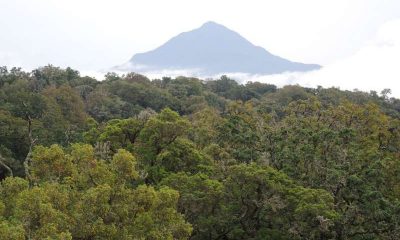

Tropical forests in Africa’s mountains store more carbon than previously thought—but are disappearing fast
-
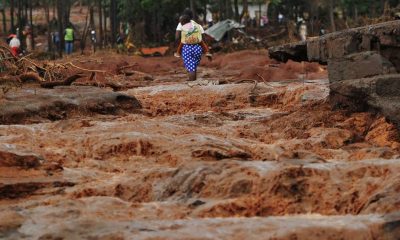

Insights for African countries from the latest climate change projections
-
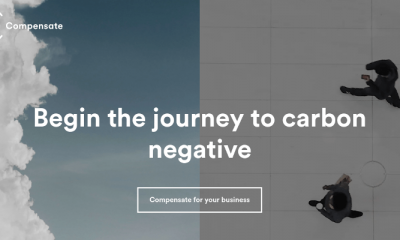

Finnish carbon offsetting firm Compensate finds 91% of carbon offset projects fail its evaluation process. Of course the remaining 9% will also not help address the climate crisis
SPECIAL REPORTS AND PROJECTS
‘Left to suffer’: Kenyan villagers take on Bamburi Cement over assaults, dog attacks
Published
4 months agoon
March 22, 2025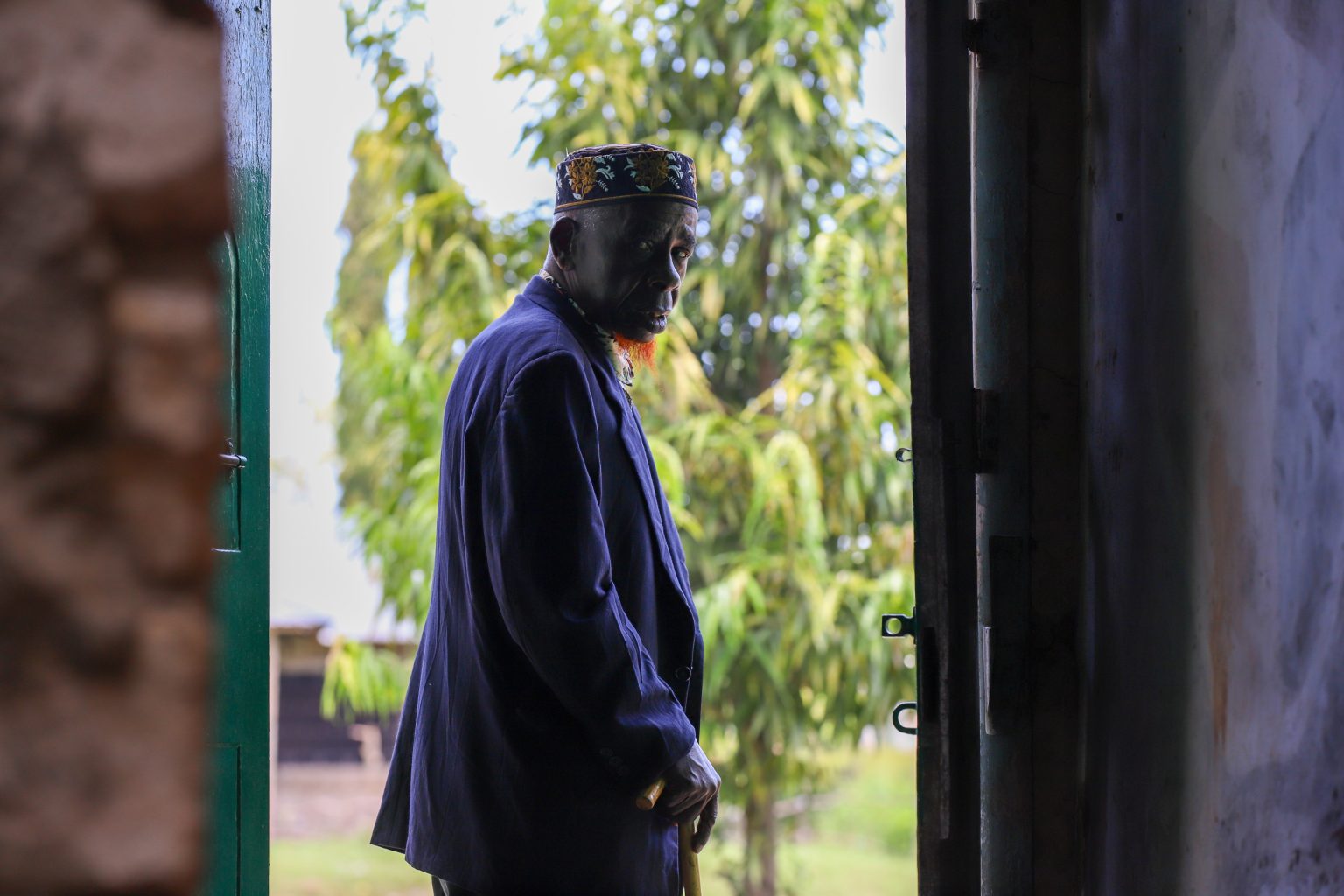
- The victims are aged between 24 and 60, and one of them has since passed on.
- Many were severely injured and hospitalized following brutal attacks, unlawful detention, and physical assault by Bamburi’s security personnel.
Editor’s note: Read the petition here.
Their hopes for justice seemed to be slipping away after initially taking on a multinational corporation and failing to hold it accountable for the brutal injuries they suffered.
The death of one of their own cast a shadow of despair, making it seem unlikely that they would ever bring the corporation to justice for the crimes they alleged.
However, 11 victims of dog attacks, assaults, and other severe human rights violations are now challenging Bamburi Cement PLC’s role in these abuses in court.
They are represented by the Kenya Human Rights Commission (KHRC), which on January 29, 2025, filed a legal claim before a constitutional court in Kenya, seeking to hold the multinational accountable for the harm suffered by the victims—residents of land parcels in Kwale that Bamburi claims ownership of. KHRC worked with the Kwale Mining Alliance (KMA) to bring this case.
The victims, aged between 24 and 60, include Mohamed Salim Mwakongoa, Ali Said, Abdalla Suleiman, Hamadi Jumadari, Abdalla Mohammed, and Omari Mbwana Bahakanda. Others are Shee Said Mbimbi, Omar Mohamed, Omar Ali Kalendi (deceased), Abdalla Jumadari, and Bakari Nuri Kassim.
Bamburi had hired a private security firm and deployed General Service Unit (GSU) officers to guard three adjoining land parcels, covering approximately 1,400 acres in Denyenye, Kwale. The GSU established a camp on the land, which has historically been accessed by residents who have long used established routes to reach the forest and the Indian Ocean.
For decades, these routes provided them with access to resources such as firewood, crops, and fish, which they relied on for their livelihoods. However, five years ago, when they attempted to collect firewood, harvest crops, and access the ocean through the land, Bamburi accused them of trespassing. The company’s private guards and GSU officers responded with force, setting dogs on them and assaulting them.
Many were severely injured and hospitalized following brutal attacks, unlawful detention, and physical assault by Bamburi’s security personnel. These incidents occurred despite the lack of clearly defined boundaries and the fact that the traditional access routes had never been contested.
According to the petition, GSU officers and private guards inflicted serious injuries by kicking, punching, and beating the victims with batons. Those who were arrested were neither taken to a police station nor charged with any offense. Despite their injuries, they were denied emergency medical care.
These actions were intended to intimidate residents, prevent them from accessing the beach, and suppress any historical claims to the land, the victims tell the court. Local police in Kwale failed to investigate the abuses, visit the crime scenes, or arrest any of the perpetrators, they add.
Now, the victims are seeking compensation for these violations. They have also asked the court to declare that their rights were violated through torture inflicted by Bamburi’s guards and GSU officers. Additionally, they want the court to rule that releasing guard dogs to attack them during arrests constituted an extreme and unlawful use of force.
Source: khrc.or.ke
Related posts:

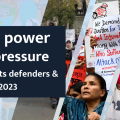 Breaking: Over 600 attacks against defenders have been recorded in the year 2023 globally- BHRRC report.
Breaking: Over 600 attacks against defenders have been recorded in the year 2023 globally- BHRRC report.
 Kaweeri Coffee land grabbing case re-trial resumes as evictees continue to suffer gross human rights violations.
Kaweeri Coffee land grabbing case re-trial resumes as evictees continue to suffer gross human rights violations.
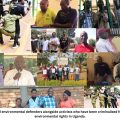 Criminalization of planet, land, and environmental defenders in Uganda is on the increase as 2023 recorded the soaring number of attacks.
Criminalization of planet, land, and environmental defenders in Uganda is on the increase as 2023 recorded the soaring number of attacks.
 Local land grabbers evict villagers at night; foreign investors cultivate the same lands the next day
Local land grabbers evict villagers at night; foreign investors cultivate the same lands the next day
SPECIAL REPORTS AND PROJECTS
River ‘dies’ after massive acidic waste spill at Chinese-owned copper mine
Published
4 months agoon
March 22, 2025A catastrophic acid spill from a Chinese-owned copper mine in Zambia has contaminated a major river, sparking fears of long-term environmental damage and potential harm to millions of people.
The spill, which occurred on February 18, has sent shockwaves through the southern African nation.
Investigators from the Engineering Institution of Zambia revealed that the incident stemmed from the collapse of a tailings dam at the mine.
This dam, designed to contain acidic waste, released an estimated 50 million litres of toxic material into a stream feeding the Kafue River, Zambia’s most important waterway.
The waste is a dangerous cocktail of concentrated acid, dissolved solids, and heavy metals.
The Kafue River, stretching over 930 miles (1,500 kilometres) through the heart of Zambia, supports a vast ecosystem and provides water for millions. The contamination has already been detected at least 60 miles downstream from the spill site, raising serious concerns about the long-term impact on both human populations and wildlife.
Environmental activist Chilekwa Mumba, working in Zambia’s Copperbelt Province, described the incident as “an environmental disaster really of catastrophic consequences”.
The spill underscores the risks associated with mining, particularly in a region where China holds significant influence over the copper industry.
Zambia ranks among the world’s top 10 copper producers, a metal crucial for manufacturing smartphones and other technologies.
Zambian President Hakainde Hichilema has appealed for expert assistance to address the crisis. The full extent of the environmental damage is still being assessed.
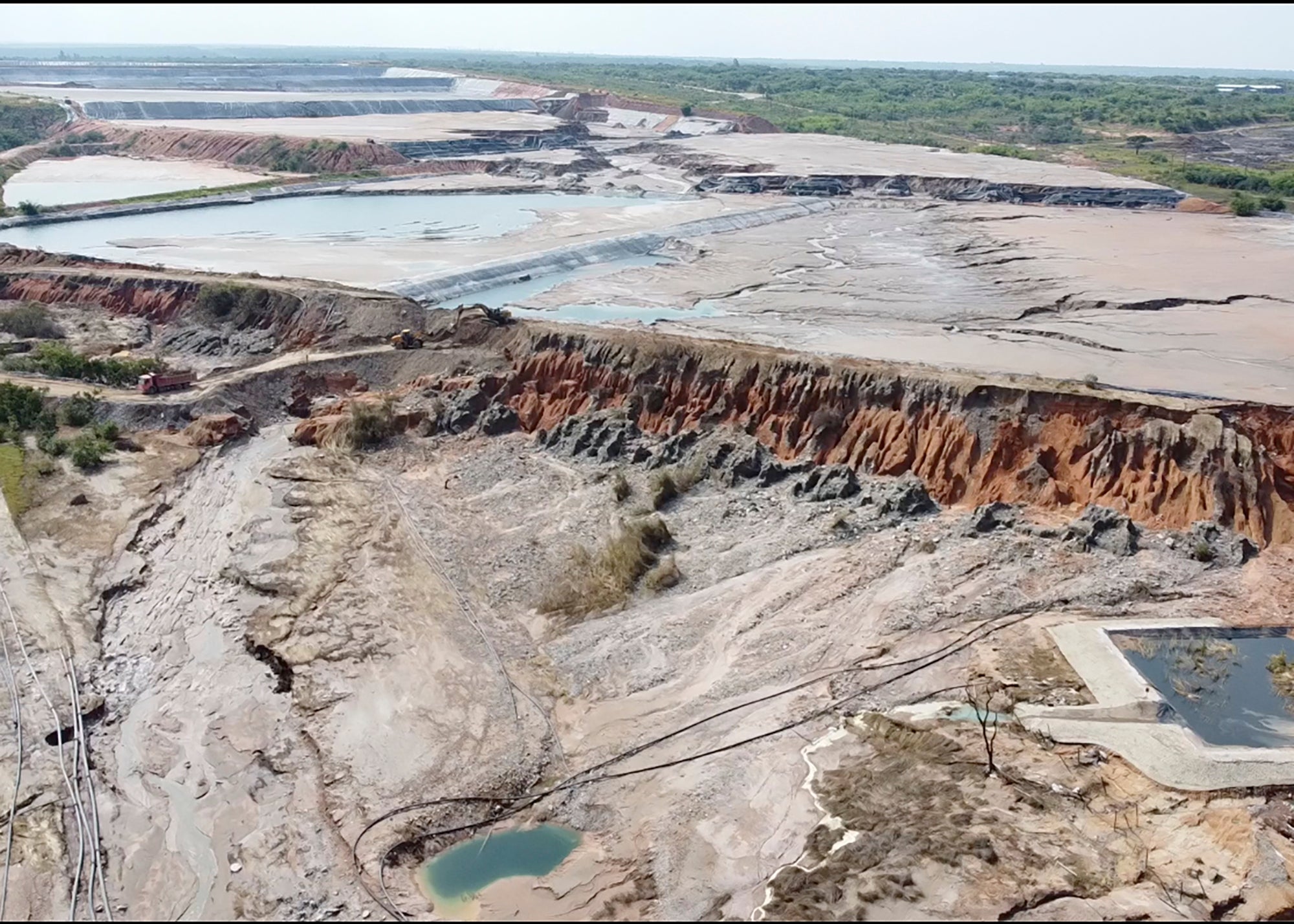
A river died overnight
An Associated Press reporter visited parts of the Kafue River, where dead fish could be seen washing up on the banks about 60 miles downstream from the mine run by Sino-Metals Leach Zambia, which is majority owned by the state-run China Nonferrous Metals Industry Group.
The Ministry of Water Development and Sanitation said the “devastating consequences” also included the destruction of crops along the river’s banks. Authorities are concerned that ground water will be contaminated as the mining waste seeps into the earth or is carried to other areas.
“Prior to February 18 this was a vibrant and alive river,” said Sean Cornelius, who lives near the Kafue and said fish died and birdlife near him disappeared almost immediately.
“Now everything is dead, it’s like a totally dead river. Unbelievable. Overnight, this river died.”
About 60 per cent of Zambia’s 20 million people live in the Kafue River basin and depend on it in some way as a source of fishing, irrigation for agriculture and water for industry. The river supplies drinking water to about five million people, including in the capital, Lusaka.
The acid leak at the mine caused a complete shutdown of the water supply to the nearby city of Kitwe, home to an estimated 700,000 people.
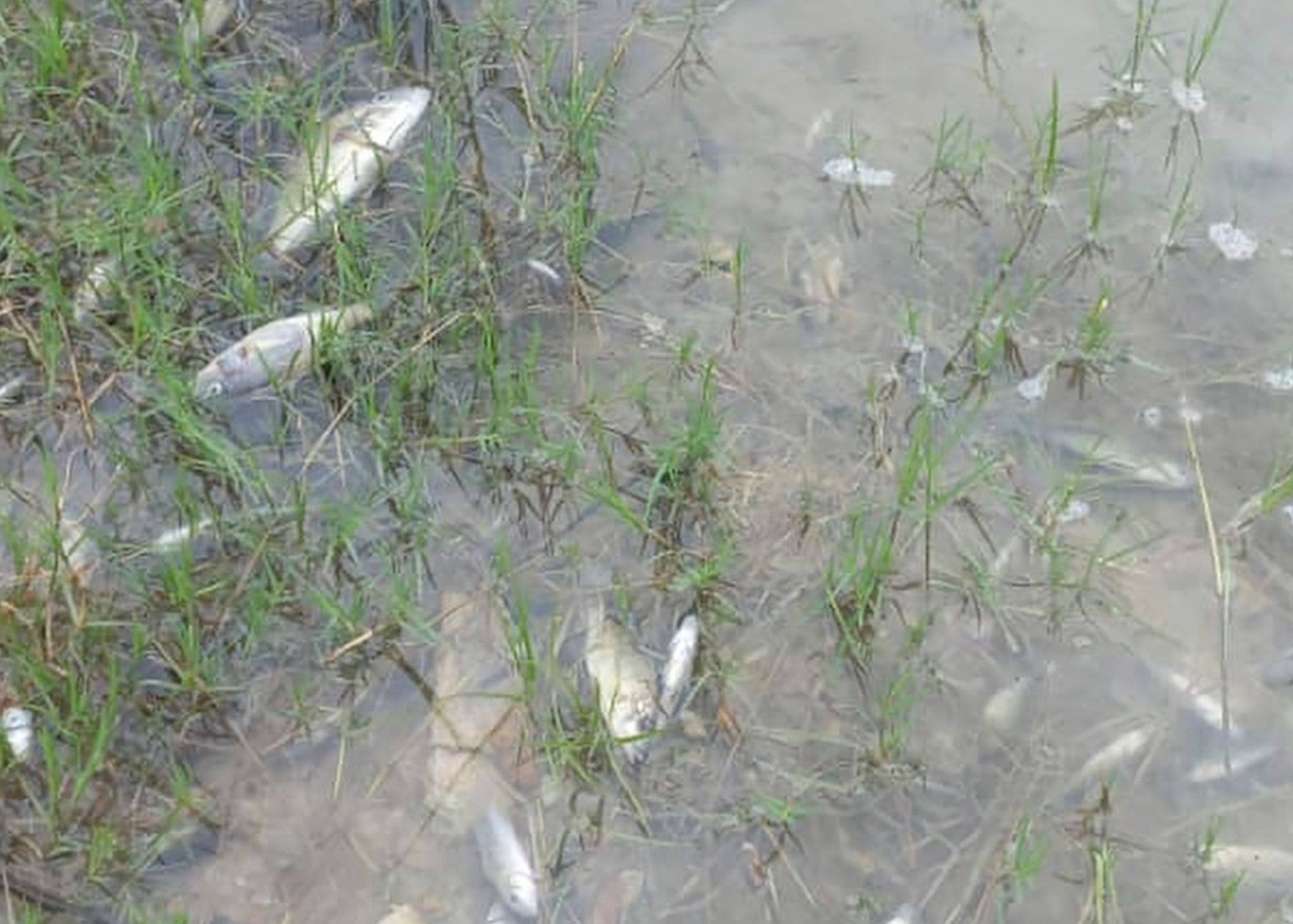
Attempts to roll back the damage
The Zambian government has deployed the air force to drop hundreds of tons of lime into the river in an attempt to counteract the acid and roll back the damage. Speed boats have also been used to ride up and down the river, applying lime.
Government spokesperson Cornelius Mweetwa said the situation was very serious and Sino-Metals Leach Zambia would bear the costs of the cleanup operation.
Zhang Peiwen, the chairman of Sino-Metals Leach Zambia, met with government ministers this week and apologized for the acid spill, according to a transcript of his speech at the meeting released by his company.
“This disaster has rung a big alarm for Sino-Metals Leach and the mining industry,” he said.
It “will go all out to restore the affected environment as quickly as possible”, he said.
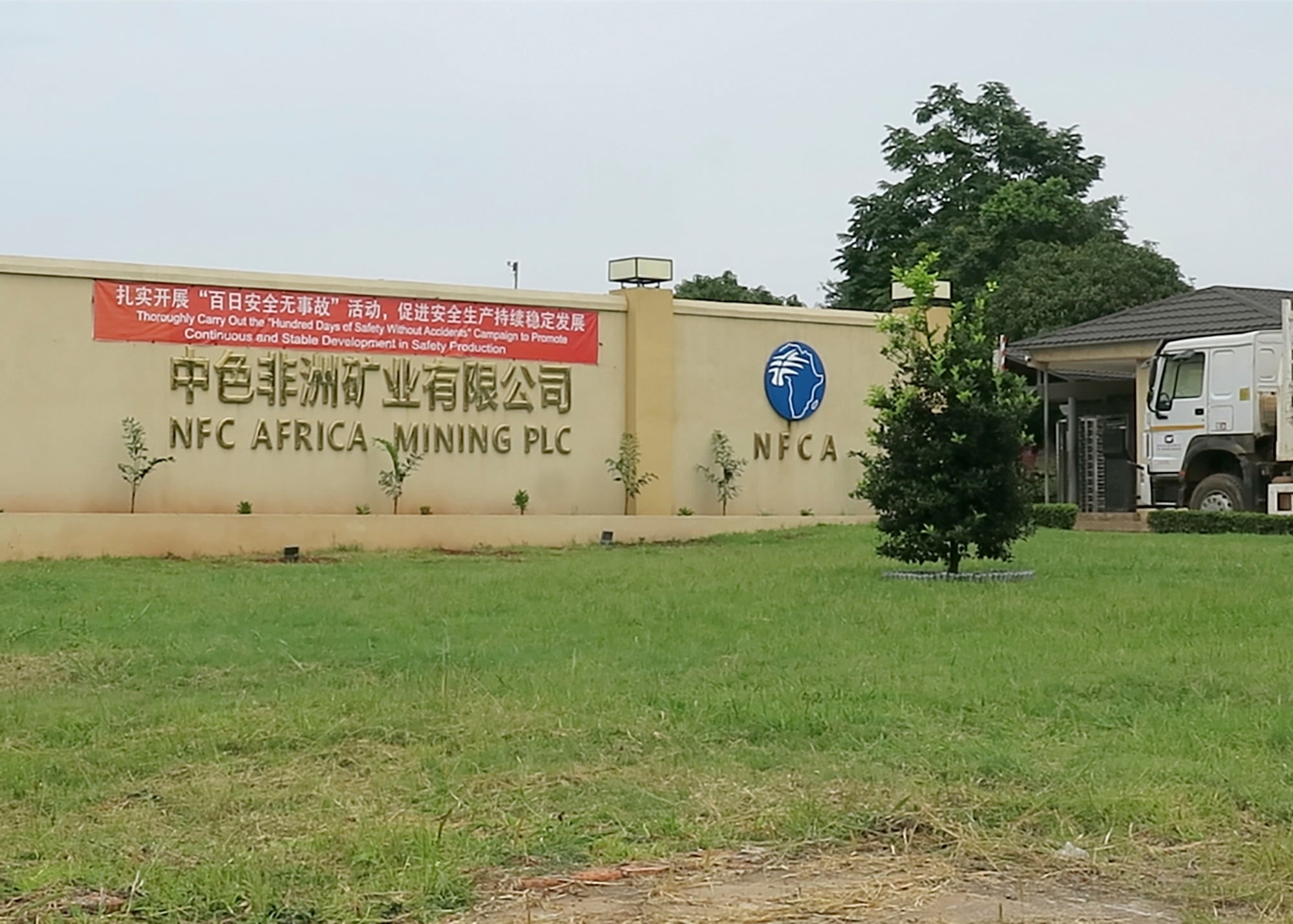
Discontent with Chinese presence
The environmental impact of China’s large mining interests in mineral-rich parts of Africa, which include Zambia’s neighbors Congo and Zimbabwe, has often been criticised, even as the minerals are crucial to the countries’ economies.
Chinese-owned copper mines have been accused of ignoring safety, labour and other regulations in Zambia as they strive to control its supply of the critical mineral, leading to some discontent with their presence.
Zambia is also burdened with more than $4 billion in debt to China and had to restructure some of its loans from China and other nations after defaulting on repayments in 2020.
A smaller acid waste leak from another Chinese-owned mine in Zambia’s copper belt was discovered days after the Sino-Metals accident, and authorities have accused the smaller mine of attempting to hide it.
Local police said a mine worker died at that second mine after falling into acid and alleged that the mine continued to operate after being instructed to stop its operations by authorities. Two Chinese mine managers have been arrested, police said.
Both mines have now halted their operations after orders from Zambian authorities, while many Zambians are angry.
“It really just brings out the negligence that some investors actually have when it comes to environmental protection,” said Mweene Himwinga, an environmental engineer who attended the meeting involving Mr Zhang, government ministers, and others.
“They don’t seem to have any concern at all, any regard at all. And I think it’s really worrying because at the end of the day, we as Zambian people, (it’s) the only land we have.”
Source: www.independent.co.uk
SPECIAL REPORTS AND PROJECTS
How Carbon Markets are Exploiting Marginalised Communities in the Global South Instead of Uplifting them
Published
7 months agoon
December 11, 2024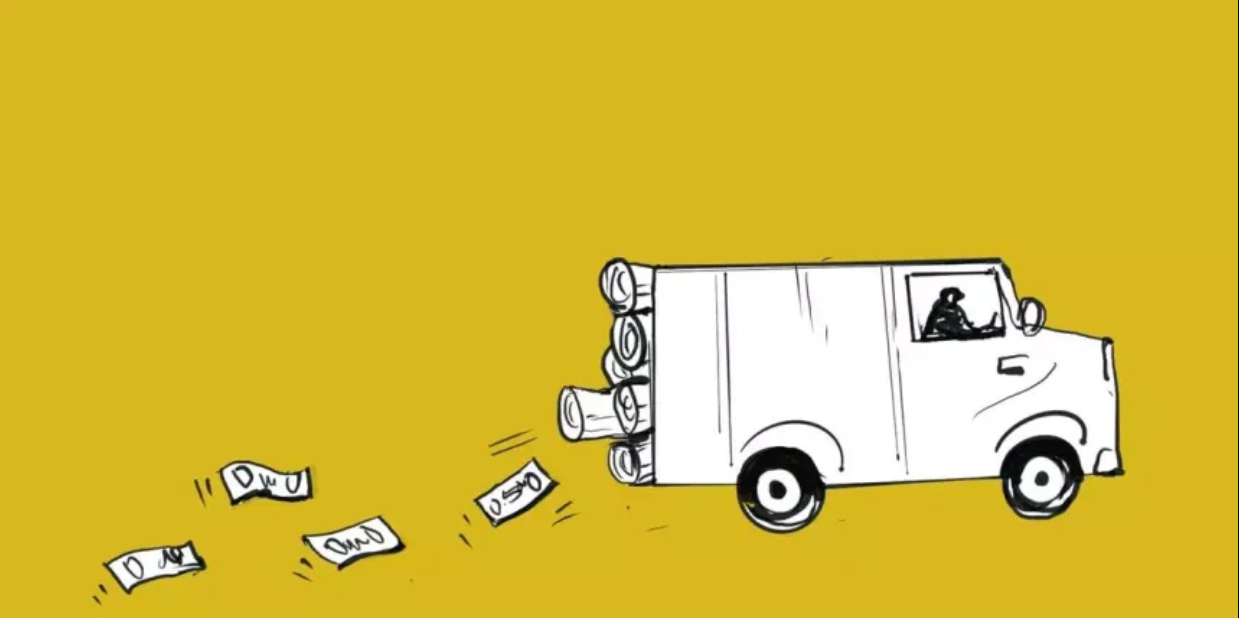
The billion-dollar fiction of carbon offsets
Carbon markets are turning indigenous farming practices into corporate profit, leaving communities empty-handed.
For Janni Mithula, 42, a resident of the Thotavalasa village in Andhra Pradesh, cultivating the rich, red soil of the valley was her livelihood. On her small patch of land grow with coffee and mango trees, planted over decades with tireless care and ancestral knowledge. Yet, once a source of pride and sustainability, the meaning of these trees has been quietly redefined in ways she never agreed to.
Over a decade ago, more than 333 villages in the valley began receiving free saplings from the Naandi Foundation as part of a large-scale afforestation initiative funded by a French entity, Livelihoods Funds. Unbeknownst to Janni and her neighbours, these trees had transfigured into commodities in a global carbon market, their branches reaching far beyond the valley to corporate boardrooms, their roots tethered not to the soil of sustenance but to the ledger of profit and carbon offsets.
The project claims that it would offset nearly 1.6 million tonnes of carbon dioxide equivalent over two decades. On paper, it is a triumph for global climate efforts. In reality, the residents’ lives have seen little improvement. While the sale of carbon credits has reportedly fetched millions of dollars for developers, Janni’s rewards have been minimal: a few saplings, occasional training sessions, and the obligation to care for trees that she no longer fully owns. These invisible transactions pose a grave risk to marginalised communities, who practice sustainable agriculture out of necessity rather than trend.
Also Read | COP29: The $300 billion climate finance deal is an optical illusion
The very systems that could uplift them—carbon markets intended to fund sustainability—end up exploiting their resources without addressing their needs.
Earlier this year, the Centre for Science and Environment (CSE) and Down To Earth (DTE) released a joint investigative report on the functioning of the voluntary carbon market in India. The report critically analysed the impacts of the new-age climate solution, its efficacy in reducing carbon emissions, and how it affected the communities involved in the schemes.
The findings highlighted systemic opacity, with key details about the projects, prices, and beneficiaries concealed under confidentiality clauses. Developers also tended to overestimate their emission reductions while failing to provide local communities with meaningful compensation. The report stated that the main beneficiaries of these projects were the project developers, auditors and companies that make a profit out of the carbon trading system.
Carbon markets: The evolution
On December 11, 1997, the parties to the United Nations Framework Convention on Climate Change (UNFCC) convened and adopted the Kyoto Protocol with the exigence of the climate crisis bearing down on the world. The Kyoto Protocol, revered for its epochal impact on global climate policy, focused on controlling the emissions of prime anthropogenic greenhouse gases (GHGs). One of the key mechanisms introduced was the “Clean Development Mechanism”, which would allow developed countries to invest in emission reduction projects in developing countries. In exchange, the developed countries would receive certified emission reduction (CER) credits, or carbon credits as they are commonly known.
One carbon credit represents the reduction or removal of one tonne of CO2. Governments create and enforce rules for carbon markets by setting emission caps and monitoring compliance with the help of third-party organisations. For example, the European Union Emissions Trading System (EU-ETS) sets an overall cap on emissions and allocates allowances to industries. A financial penalty system was also put in place to prevent verifiers and consultants from falsifying emissions data. The impact of these renewable projects is usually verified through methods such as satellite imagery or on-site audits.
Companies such as Verra and Gold Standard have seized this opportunity, leading the designing and monitoring of carbon removal projects. Governments and corporations invest in these projects to meet their own net-zero pledges. The companies then issue carbon credits to the investing entity. Verra has stated that they have issued over 1 billion carbon credits, translating into the reduction of 1 billion tonnes of greenhouse gas emissions. However, countless case studies and reports have indicated that only a small fraction of these funds reach the local communities practising sustainability.
Article 6 under the Paris Agreement further concretised and regulated the crediting mechanism to enable countries interested in setting up carbon trading schemes. However, the parties failed to reach a consensus regarding the specifics of Article 6 at COP 27 and COP 28. So, climate finance experts and policymakers were very interested in the developments taking place at the COP 29 summit in Baku, Azerbaijan. Unlike its predecessors, the COP 29 summit has seen a diminished attendee list, with major Western political leaders including Joe Biden, Ursula von der Leyen, Olaf Scholz, and Emmanuel Macron failing to make it to the summit due to the increasingly turbulent climate within their own constituencies.
From a post-colonial perspective, carbon markets have been viewed as perpetuating existing global hierarchies; wealthier countries and corporations fail to reduce their emissions and instead shift the burden of mitigation onto developing nations. | Photo Credit: Illustration by Irfan Khan
Sceptics questioned whether this iteration of the summit would lead to any substantial decisions being passed. However, on day-two of the summit, parties reached a landmark consensus on the standards for Article 6.4 and a dynamic mechanism to update them. Mukhtar Babayev, the Minister of Ecology and Natural Resources of Azerbaijan and the COP 29 President, said: “By matching buyers and sellers efficiently, such markets could reduce the cost of implementing Nationally Determined Contributions by 250 billion dollars a year.” He added that cross-border cooperation and compromise would be vital in fighting climate change.
India has positioned itself as an advocate for the Like-Minded Developing Countries (LMDCs) group, with Naresh Pal Gangwar, India’s lead negotiator at COP 29, saying, “We are at a crucial juncture in our fight against climate change. What we decide here will enable all of us, particularly those in the Global South, to not only take ambitious mitigation action but also adapt to climate change.”
The COP 29 decision comes in light of the Indian government’s adoption of the amended Energy Conservation Act of 2022, which enabled India to set up its own carbon market. In July 2024, the Bureau of Energy Efficiency (BEE), an agency under the Ministry of Power, released a detailed report containing the rules and regulations of the Carbon Credit Trading Scheme (CCTS), India’s ambitious plan for a compliance-based carbon market. The BEE has aimed to launch India’s carbon market in 2026.
CSE’s report highlighted the challenges and possible strategies that the Indian carbon market could adopt from other carbon markets around the world. Referring to this report, Parth Kumar, a programme manager at CSE, pointed out how low carbon prices and low market liquidity would be prominent challenges that the nascent Indian market would have to tackle.
The Global South should be concerned
Following the landmark Article 6.4 decision, climate activists called out the supervisory board for the lack of discussion in the decision-making process. “Kicking off COP29 with a backdoor deal on Article 6.4 sets a poor precedent for transparency and proper governance,” said Isa Mulder, a climate finance expert at Carbon Market Watch. The hastily passed decision reflects the pressure that host countries seem to face; a monumental decision must be passed for a COP summit to be touted as a success.
The science behind carbon markets is rooted in the ability of forests, soil, and oceans to act as carbon sinks by capturing atmospheric carbon dioxide. This process is known as carbon sequestration, and it is central to afforestation and soil health restoration projects. However, the long-term efficacy and scalability of these projects have been repeatedly questioned. The normative understanding of carbon markets as a tool to mitigate climate change has also come under scrutiny recently, with many activists calling the market-driven approach disingenuous to the goals of the climate movement.
From a post-colonial perspective, carbon markets have been viewed as perpetuating existing global hierarchies; wealthier countries and corporations fail to reduce their emissions and instead shift the burden of mitigation onto developing nations. Olúfẹ́mi O. Táíwò, Professor of Philosophy at Georgetown University, said, “Climate colonialism is the deepening or expansion of foreign domination through climate initiatives that exploit poorer nations’ resources or otherwise compromises their sovereignty.” Moreover, the effects of climate change disproportionately fall on the shoulders of marginalised communities in the Global South, even though industrialised nations historically produce the bulk of emissions.
There have also been doubts surrounding the claiming process of carbon credits and whether the buyer country or the country where the project is set can count the project towards its own Nationally Determined Contributions (NDCs). Provisions under Article 6 of the Paris Agreement state that countries cannot use any emission reductions sold to another company or country towards their own emissions targets. However, this has become a widespread issue plaguing carbon markets. The EU has recently been criticised for counting carbon credits sold to corporations under the Carbon Removal Certification Framework (CRCF) towards the EU’s own NDC targets. This has led to concerns over the overestimation of the impact of mission reduction projects.
Also Read | India needs climate justice, not just targets
Carbon offset projects, additionally, alienate local communities from their land as the idea of ownership and stewardship becomes muddled with corporate plans on optimally utilising the land for these projects. For example, in 2014, Green Resources, a Norwegian company, leased more than 10,000 hectares of land in Uganda, with additional land being leased in Mozambique and Tanzania. This land was used as a part of afforestation projects to practise sustainability and alleviate poverty in the area. However, interviews conducted with local Ugandan villagers revealed that the project forcibly evicted the local population without delivering its promises to improve access to health and education for the community. These concerns highlighted how the burden of adopting sustainable practices is placed on marginalised communities.
While carbon markets are rightfully criticised, they remain a key piece of the global climate adaptation puzzle. Addressing the issues surrounding transparency and equitable benefit-sharing with local communities could lead to carbon markets having a positive impact on climate change. The system must ensure that larger corporations and countries do not merely export their emissions, but instead implement measures to reduce their own emissions over time. It is also imperative to explore other innovative strategies such as circular economy approaches and nature-based solutions that are more localised, offering hope for a just and sustainable future.
Adithya Santhosh Kumar is currently pursuing a Master’s in Engineering and Policy Analysis at the Delft University of Technology in the Netherlands.
Source: frontline.thehindu.com
Related posts:

 A new destructive business: Carbon credits from tree plantations
A new destructive business: Carbon credits from tree plantations
 East Africa poised to monitor carbon emission
East Africa poised to monitor carbon emission
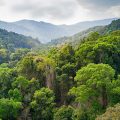 The Rush for Carbon Concessions: More Land Theft and Deforestation
The Rush for Carbon Concessions: More Land Theft and Deforestation
 Uganda: Local communities claim they are not benefiting from Green Resources’ subsidiary’s carbon credit initiative; incl. company’s comments
Uganda: Local communities claim they are not benefiting from Green Resources’ subsidiary’s carbon credit initiative; incl. company’s comments

Communities Under Siege: New Report Reveals World Bank Failures in Safeguard Compliance and Human Rights Oversight in Tanzania

A decade of displacement: How Uganda’s Oil refinery victims are dying before realizing justice as EACOP secures financial backing to further significant environmental harm.

Carbon Markets Are Not the Solution: The Failed Relaunch of Emission Trading and the Clean Development Mechanism

Govt launches Central Account for Busuulu to protect tenants from evictions

Uganda’s top Lands Ministry official has been arrested and charged with Corruption and Abuse of Office, a significant event that will have far-reaching implications for land governance in the country.

A decade of displacement: How Uganda’s Oil refinery victims are dying before realizing justice as EACOP secures financial backing to further significant environmental harm.

Govt launches Central Account for Busuulu to protect tenants from evictions

Despite harsh repression, opposition to the EACOP pipeline in Uganda remains strong

Innovative Finance from Canada projects positive impact on local communities.
Over 5000 Indigenous Communities evicted in Kiryandongo District
Petition To Land Inquiry Commission Over Human Rights In Kiryandongo District
Invisible victims of Uganda Land Grabs
Resource Center
- LAND GRABS AT GUNPOINT REPORT IN KIRYANDONGO DISTRICT
- RESEARCH BRIEF -TOURISM POTENTIAL OF GREATER MASAKA -MARCH 2025
- The Mouila Declaration of the Informal Alliance against the Expansion of Industrial Monocultures
- FORCED LAND EVICTIONS IN UGANDA TRENDS RIGHTS OF DEFENDERS IMPACT AND CALL FOR ACTION
- 12 KEY DEMANDS FROM CSOS TO WORLD LEADERS AT THE OPENING OF COP16 IN SAUDI ARABIA
- PRESENDIANTIAL DIRECTIVE BANNING ALL LAND EVICTIONS IN UGANDA
- FROM LAND GRABBERS TO CARBON COWBOYS A NEW SCRAMBLE FOR COMMUNITY LANDS TAKES OFF
- African Faith Leaders Demand Reparations From The Gates Foundation.
Legal Framework
READ BY CATEGORY
Newsletter
Trending
-

 MEDIA FOR CHANGE NETWORK2 weeks ago
MEDIA FOR CHANGE NETWORK2 weeks agoA decade of displacement: How Uganda’s Oil refinery victims are dying before realizing justice as EACOP secures financial backing to further significant environmental harm.
-

 MEDIA FOR CHANGE NETWORK2 weeks ago
MEDIA FOR CHANGE NETWORK2 weeks agoGovt launches Central Account for Busuulu to protect tenants from evictions
-

 NGO WORK4 days ago
NGO WORK4 days agoCommunities Under Siege: New Report Reveals World Bank Failures in Safeguard Compliance and Human Rights Oversight in Tanzania
-

 MEDIA FOR CHANGE NETWORK2 weeks ago
MEDIA FOR CHANGE NETWORK2 weeks agoCarbon Markets Are Not the Solution: The Failed Relaunch of Emission Trading and the Clean Development Mechanism

